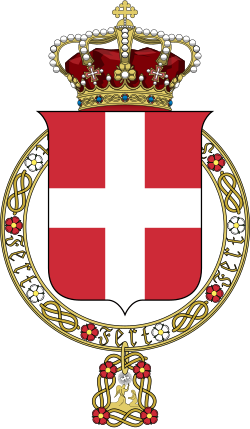Pelloux II government | |
|---|---|
| 37th Cabinet of Italy | |
 | |
| Date formed | 14 May 1899 |
| Date dissolved | 24 June 1900 |
| People and organisations | |
| Head of state | Umberto I |
| Head of government | Luigi Pelloux |
| Total no. of members | 11 |
| Member party | Historical Right Historical Left |
| History | |
| Predecessor | Pelloux I Cabinet |
| Successor | Saracco Cabinet |
The Pelloux II government of Italy held office from 14 May 1899 until 24 June 1900, a total of 407 days, or 1 year, 1 month and 10 days. [1]
